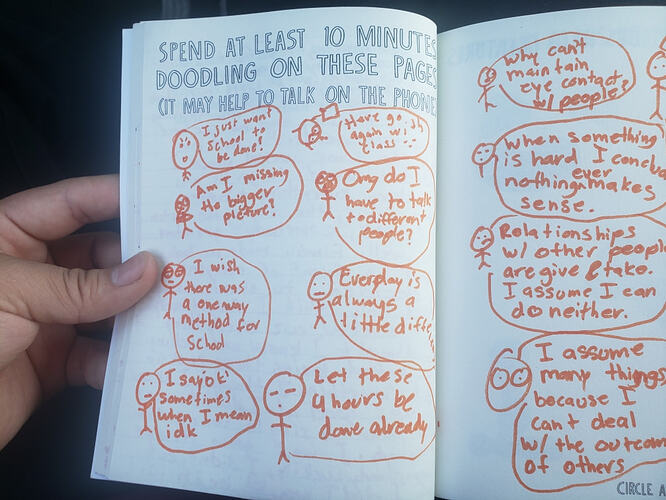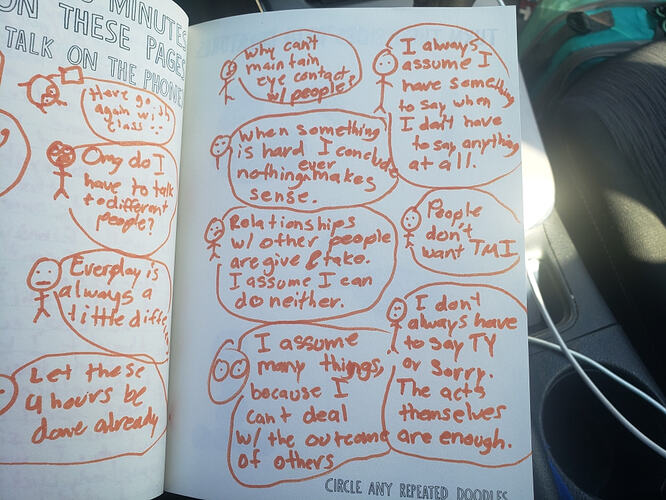Atomic Habits by James Clear says:
The more you repeat a behavior, the more you reinforce the identity associated with that behavior. In fact, the word identity was originally derived from the Latin words essentitas, which means being, and identidem, which means repeatedly. Your identity is literally your “repeated beingness.”
I was suspicious enough to look this up in eight sources. It’s wrong according to every source. Identity comes from the Latin word “idem”, which means “same”. Example source.
The full details of the etymology are unknown and there’s more than one theory about it. Parts of what Clear says is mentioned in some sources. It’s not made up from nothing but it’s not a reasonable statement of the etymology. He was biased to make an etymological claim that would fit the stuff he was saying in the book about identity. He correctly saw that his etymology claim would resonate with some readers. This misinformation has now been spread online in several places.
The closest thing I found to a source that agrees with Clear, from eight sources, is from American Heritage 4 dictionary’s entry for “identity”:
[French identité, from Old French identite, from Late Latin identitās, from Latin idem, the same (influenced by Late Latin essentitās, being , and identidem, repeatedly ), from id, it . See i- in [Indo-European Roots](x-dictionary:d:Indo-European Roots).]
This mentions both essentitās and identidem, like Clear does. However, it still says that identity comes from idem=same (which I think is uncontroversial), so Clear is wrong to omit that – he left out the primary etymology. AH4 gives essentitās + identidem (repeated being) as merely an influence on how the main thing happened (going from idem=same to identity).
OED mentions identidem as one possible influence that some scholars have thought but others have not agreed with and doesn’t mention essentitās at all. The majority of sources I saw didn’t mention identidem or essentitās.
After writing the above, I found more information in the book. Although there’s no source or footnote for this (at least in my ebook, which does have footnotes for other text), I text searched the whole book and found chapter 2 notes at the end which say:
Your identity is literally your “repeated beingness”: Technically, identidem is a word belonging to the Late Latin language. Also, thanks to Tamar Shippony, a reader of jamesclear.com, who originally told me about the etymology of the word identity, which she looked up in the American Heritage Dictionary.
So Clear is just wrong. I’d successfully found his source by finding the best match out of 8 sources I checked. The note weirdly makes it sound like he might not have looked it up himself, which would be terrible. If he did read AH himself, he’s either terrible at reading or so biased that his ability to read was defeated by bias.
The newest edition of AH is the 5th which is free online American Heritage Dictionary Entry: identity And it says the same thing as the 4th edition electronic copy I have.
There’s no reasonable, honest way to read that dictionary entry and think the text in the book is acceptable. Besides damning Clear, this also damns his publisher (Penguin Random House) and their standards, editors and fact checkers.
Also, now that I realize the publisher is Random House, I’ll share what their own dictionary says…
[1560-70; < LL identitas, equiv. to L ident ( idem ) repeatedly, again and again, earlier * idem et idem ( idem neut. of idem the same + et and) + -itas -ITY]
Note first that “essentitas” isn’t mentioned as part of the etymology at all and second that idem=same is given as an earlier latin root than identitas=repeatedly which is also not the identidem=repeatedly that Clear said. These people actually make a dictionary that disagrees with Clear and they don’t notice that (nor do they notice that the rival dictionary he cites also disagrees with Clear).

